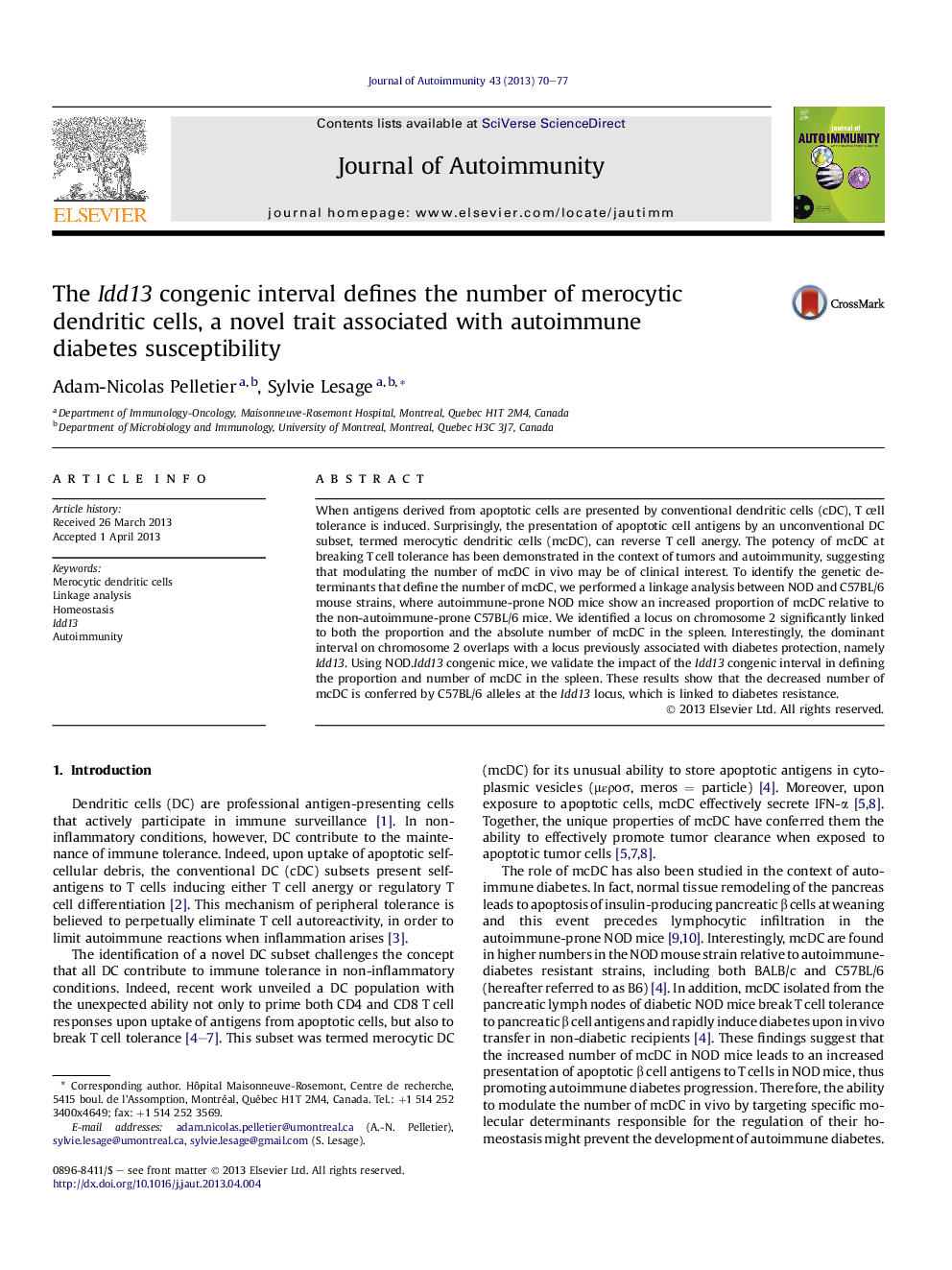| Article ID | Journal | Published Year | Pages | File Type |
|---|---|---|---|---|
| 3367807 | Journal of Autoimmunity | 2013 | 8 Pages |
•High merocytic dendritic cell (mcDC) number in NOD mice is not due to autoimmunity.•mcDC are known to break T cell tolerance and contribute to autoimmunity.•mcDC number is linked to the distal end of mouse chromosome 2.•The Idd13 congenic interval on chromosome 2 regulates the number of mcDC.
When antigens derived from apoptotic cells are presented by conventional dendritic cells (cDC), T cell tolerance is induced. Surprisingly, the presentation of apoptotic cell antigens by an unconventional DC subset, termed merocytic dendritic cells (mcDC), can reverse T cell anergy. The potency of mcDC at breaking T cell tolerance has been demonstrated in the context of tumors and autoimmunity, suggesting that modulating the number of mcDC in vivo may be of clinical interest. To identify the genetic determinants that define the number of mcDC, we performed a linkage analysis between NOD and C57BL/6 mouse strains, where autoimmune-prone NOD mice show an increased proportion of mcDC relative to the non-autoimmune-prone C57BL/6 mice. We identified a locus on chromosome 2 significantly linked to both the proportion and the absolute number of mcDC in the spleen. Interestingly, the dominant interval on chromosome 2 overlaps with a locus previously associated with diabetes protection, namely Idd13. Using NOD.Idd13 congenic mice, we validate the impact of the Idd13 congenic interval in defining the proportion and number of mcDC in the spleen. These results show that the decreased number of mcDC is conferred by C57BL/6 alleles at the Idd13 locus, which is linked to diabetes resistance.
